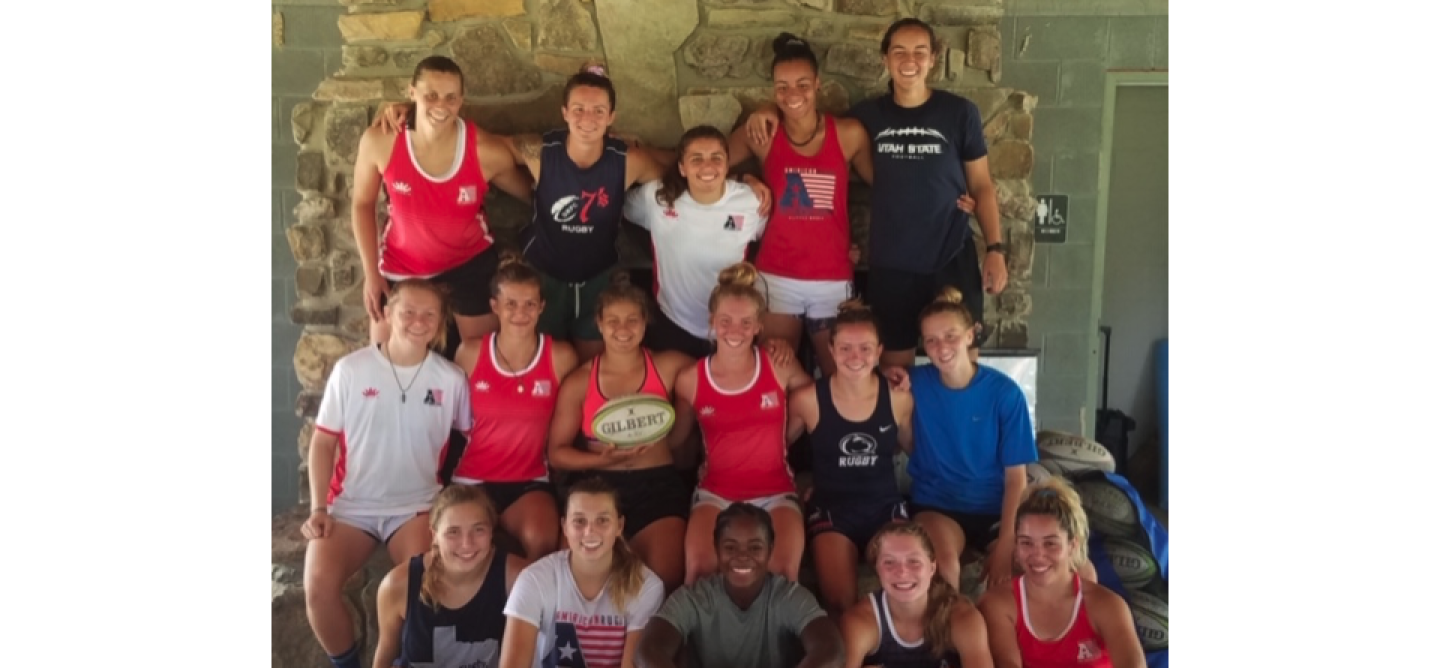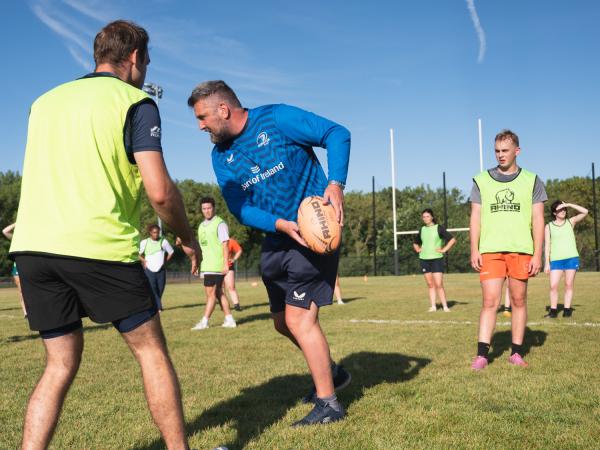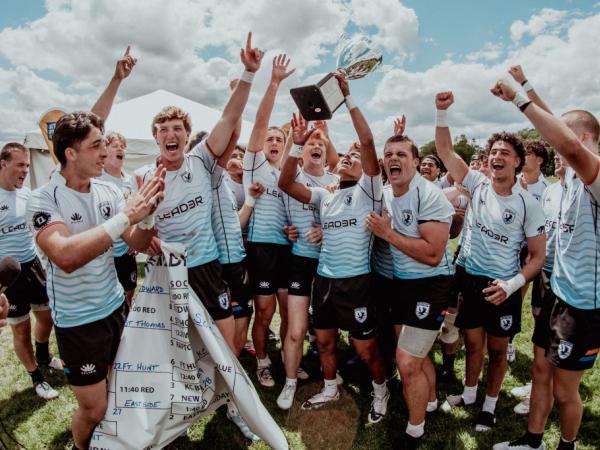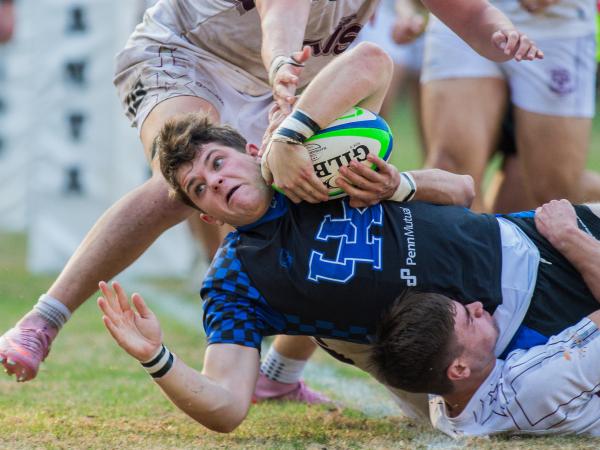After a startlingly successful bubble residency camp in Arkansas, American Rugby Pro Training Center is announcing a fall residency program.
Both the summer and fall programs are for high-level women’s players, and USA Rugby has in fact placed a few touted youngsters within this program for additional development.
Run by former USA Women's 7s Head Coach Julie McCoy, the summer program followed a series of strict safety protocols to ensure protection from the COVID-19 pandemic.
“We knew we needed to have players working on their skills,” said McCoy. “You can’t get better sitting on your booty. So we instituted a COVID policy; we isolated within the program, and it was successful.”
Here’s how the summer program worked:
Players and coaches quarantined for 14 days. Everyone was in her own room.
“The staff isolated as well as the players, and that was important,” said McCoy. “The players all saw that everyone was doing it.”
In communal areas during the 14-days isolation, social distancing was enforced. Strips were put on the floor leading to the bathroom to ensure separation. At all times players remained at least six feet apart.
During the 14 days, the players worked on individual skills.
Everyone wore masks, and handwashing and cleaning of surfaces and equipment was constant.
Every player and coach had her temperature taken every morning, and her Pulse Oximetry levels taken. Any abnormal readings or any potential COVID symptoms led to the person being pulled out into quarantine. That person then met with a doctor in a telemedicine visit and returned to training only when tested (and negative) or cleared by a doctor.
Two women reported sore throats during their time in the ARPTC residency. Both went into isolation and were later cleared to return. There were no abnormal temperatures through the entire residency.
Once the 14-day quarantine was up, the players were able to be closer together and train in groups and socialize more. They lived in suites which each had a kitchen.
More On The ARPTC Fall Residency >>
Even then, there were some local rules to follow.
“At the time, Arkansas did not allow contact,” said McCoy. “So we adapted. There’s always more learning to be had, and we worked on aspects of the game that did not require contact.”
Eighteen players participated, with 14 saying they are coming back for the fall.
... already ARPTC has shown that an on-field, in-person rugby program can be done in this time of COVID.
It's An Adjustment
“Most people aren’t in the military or in institutions where there’s rigid rule-following,” said McCoy. “So giving up of their own wants and needs for the betterment of the whole was maybe new, but they
also liked it. They saw that, ‘wow we really can create the environment that we want to be a part of; we always had that power.’”
ARPTC has its own rugby facility and its own gym, so they were in a good position to isolate. Then it was just clean, clean, clean. Eventually the players learned that they not only could handle the restrictions in the interests of developing their rugby, they could probably handle more.
“Interestingly, the players who were returning asked for even more stringent controls,” McCoy explained. “That way, they can be certain of having a successful fall.”
Over July 4 McCoy asked the players to create their own ARPTC Constitution complete with a preamble and amendments. It again was a way of giving the players the power to own some of the restrictions COVID-19 is forcing on us all.
“We all have to learn how to live with COVID, manage it, and go about our lives,” said McCoy. “We wanted to see, can this be done? It can.”
Fall Program Now Accepting Applicants
So on to the fall. There are 24 places in the Fall Residency program for women players 18-24 (if you're 17 you can attend if you are playing at a high level and your parents sign a waiver), and McCoy said this is an excellent opportunity for rugby athletes who will be studying or working remotely this fall. If you are studying or working remotely, then it doesn’t matter where you are; you might as well be in Little Rock, Ark. working on your rugby skills.
At least two USA up-and-comers will be in the group, as well as those 14 returning players. McCoy said she knows of two athletes who have deferred starting colleges—one at Harvard and one at Life—in order the avoid a canceled season, and they will be in Little Rock instead.
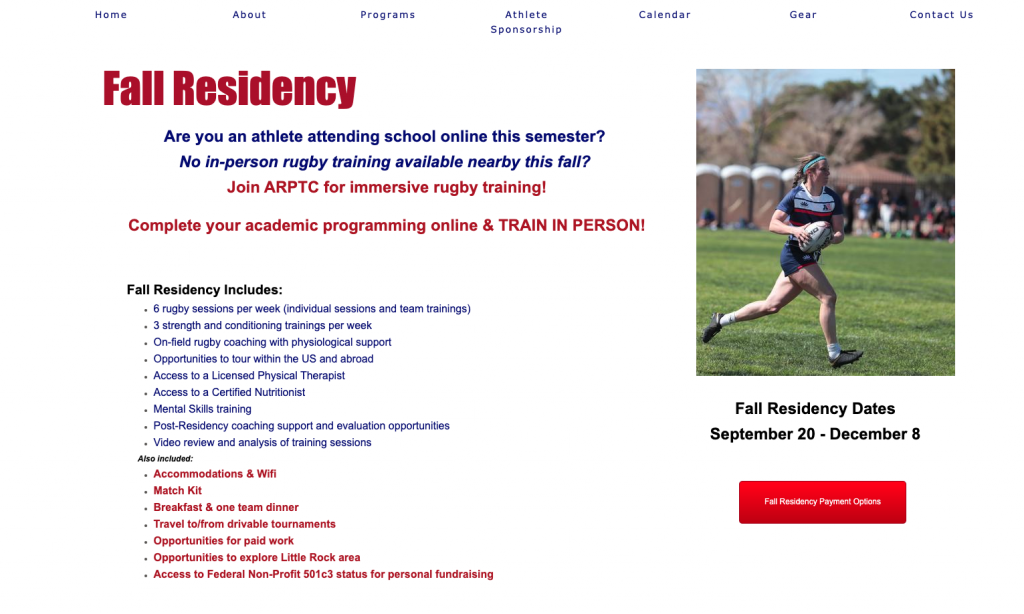 This is billed as an intensive, full-immersive program and will run from September 20 through December 8. The plan is to form an ARPTC team out of this group to play at the Barbados 7s, assuming that tournament remains on the calendar.
This is billed as an intensive, full-immersive program and will run from September 20 through December 8. The plan is to form an ARPTC team out of this group to play at the Barbados 7s, assuming that tournament remains on the calendar.
“We would like 24 athletes because then if we are able to do contact, we can play each other,” explained McCoy.
The residency includes rugby training, nutrition, mental skills, strength & conditioning, and video analysis. The cost is $1599 per month, which includes accommodations and meals, and there are opportunities for players to raise funds or work for pay to subsidize the stay.
But the entire residency will be run with stringent COVID safety protocols in place.
For details on the residency and how to sign up, go to:
http://www.americanrugbypro.com/fall-residency.html
But already ARPTC has shown that an on-field, in-person rugby program can be done in this time of COVID.
“What the players and staff learned will set them up for the rest of their lives in how to deal with this,” said McCoy. “I am very proud of the players and the staff who are making sure that business as usual was done even in an unusual situation.”





